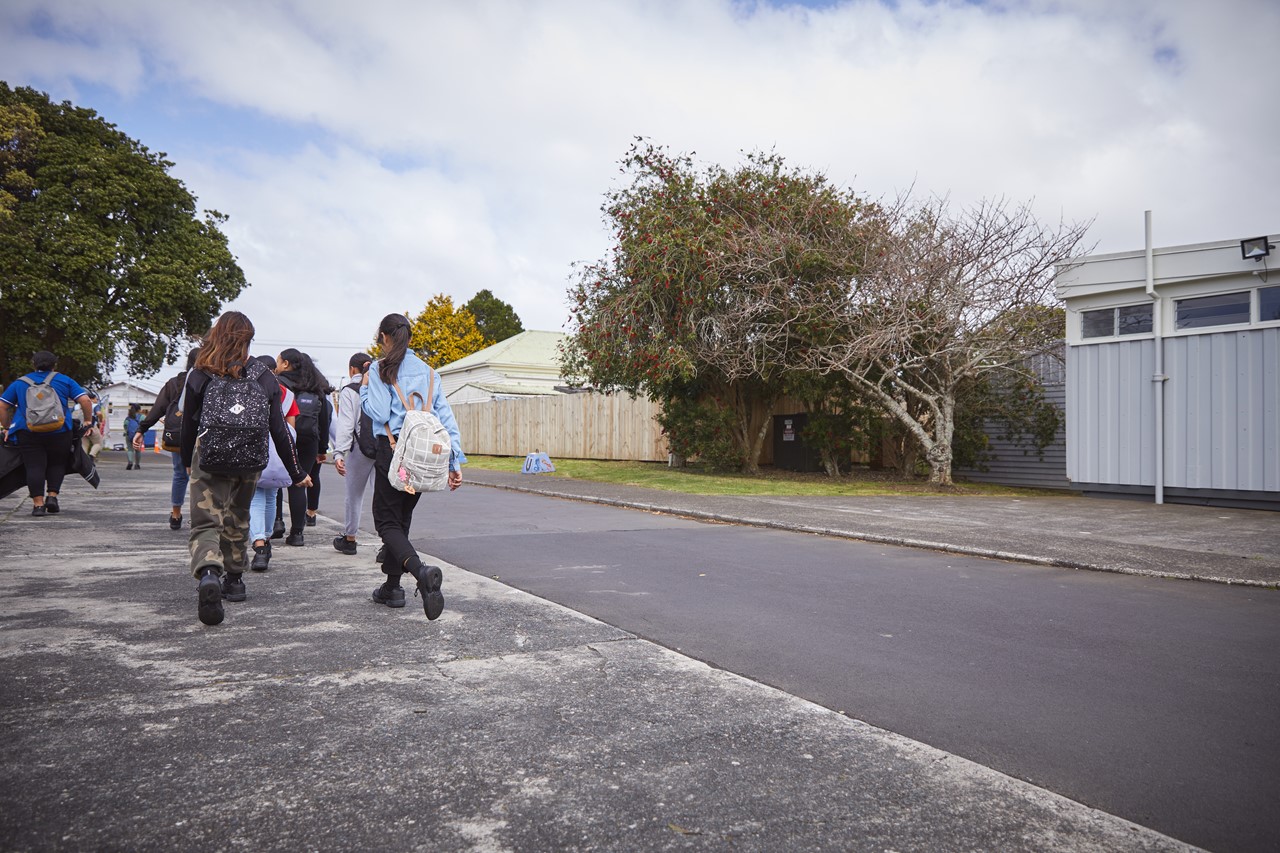
It always sticks with me. "What did you have to eat last night?" I asked an upset kid at interval, as I tried to get to the bottom of what was going on. "Red soup," he said. "Tomato soup?" I asked. If only.
He explained red soup was the water that cheerios had been cooked in. That leftover water was the main family meal. And obviously that child was hungry - really hungry.
That's an extreme example, but hunger is a big issue within our community. We're the largest decile one school in New Zealand with over 2000 students, a beautiful mix of around 50 different nationalities. Our kids are as good as any kids. They've got the same potential and abilities. They just don't start on the same start-line.
I've heard the median wage in our community is about $20,000. Parents on minimum wage are working shifts with crazy hours. How do you feed, clothe, keep warm and house a family on that?
My dream is to serve our students a two or three course lunch at school, like they do in the UK. I started my teaching career there in 1989 in a low socio-economic part of Manchester. We served the kids a hot meal every day. It was subsidised, so only those who could afford it paid. Because all the science is there that if your basic needs aren't being met, then how can you be expected to be in the right space to learn?
I think it should be part of life in every school in New Zealand - government funded - no matter the decile. It really surprises me that we don't do it already. This canteen, fast food, Americanised model that exists in most schools here doesn't reflect the culture of New Zealand.
Traditionally, it's really important to sit down, face-to-face, and share kai together. But that's been eroded by screens.
For now, we can genuinely say that no kid has to come to school and be hungry. Through the support of KidsCan and other agencies we are able to provide for that most basic need. Two hundred kids come for breakfast each day - some are here as early as 6am. We make five hundred toasties a day for lunch. And we've just started receiving KidsCan's hot meals - they're just flying out. Butter chicken is the favourite. For some it will be the only hot meal they get a day, and in the cold that really affects our kids.
We're particularly targeting kids who are not engaged in learning, because hunger can be a big part of that. They can be quite loud and destructive in the classroom - or at the other extreme just not engaging, no energy. Whilst they're not causing a problem, they're just not there.
Our challenge is to realise our kids' potential. We're proving that if kids stay with us, if they engage with us, then we're able to provide amazing opportunities; and they can and they do succeed.
For our kids who have attendance rates above 90 per cent, their achievement compares with anybody across New Zealand. It's the old cliché that education is the enemy of poverty. Our maths team just placed in the top five of 800 entries worldwide in an international modelling competition. Our hip hop dancers, the Rewa All Stars, have just performed in America at the World Champs, where they were special guests. The real story behind that is they raised $165,000 to get there by operating a gig academy in the corporate world.
We're not too proud to take all the support we can get. We need additional resources because on $20,000 incomes, our families just can't afford everything they need. I've never seen poverty so high as the last few years. When something as simple as a hot meal at school causes so much excitement.
* Pete Jones is the Principal of Manurewa High School in South Auckland.